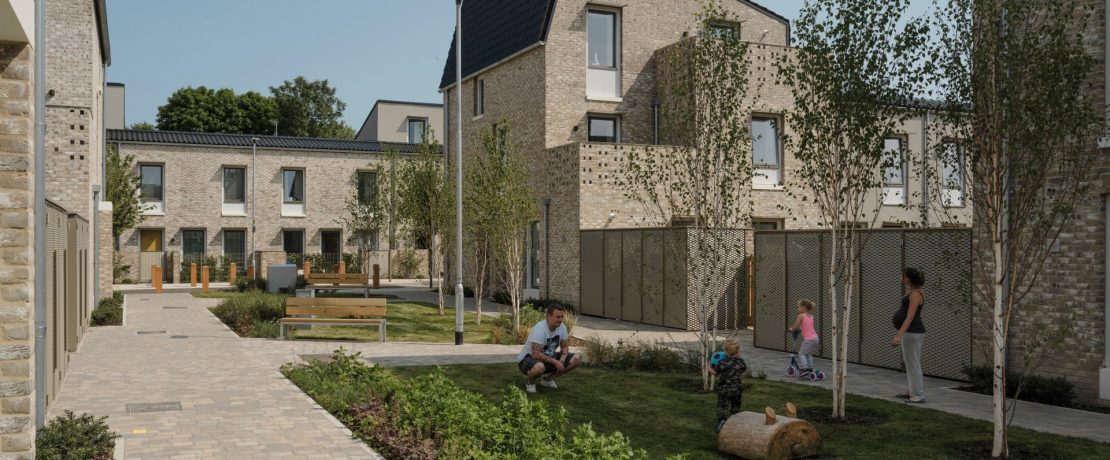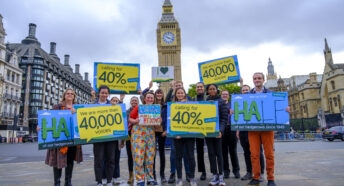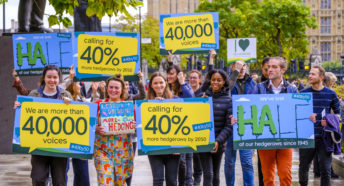2020: CPRE's impact
Despite the difficulties caused by the coronavirus pandemic that hit the country in February 2020, we continued to have a positive impact. We recall CPRE’s highlights of 2020.
We started the year having coordinated the first ever National Housing Design Audit, rating 140 schemes across England on design quality and sustainability. Published in January, the audit concluded that developers must do much more to comply with design standards and energy efficiency targets, while avoiding sprawling, car-dependent communities.
The government’s Building Better, Building Beautiful Commission took on board our recommendations that new developments must protect and enhance our built and natural environments – as achieved by the CPRE Norfolk award-winning Goldsmith Street in Norwich (pictured above).
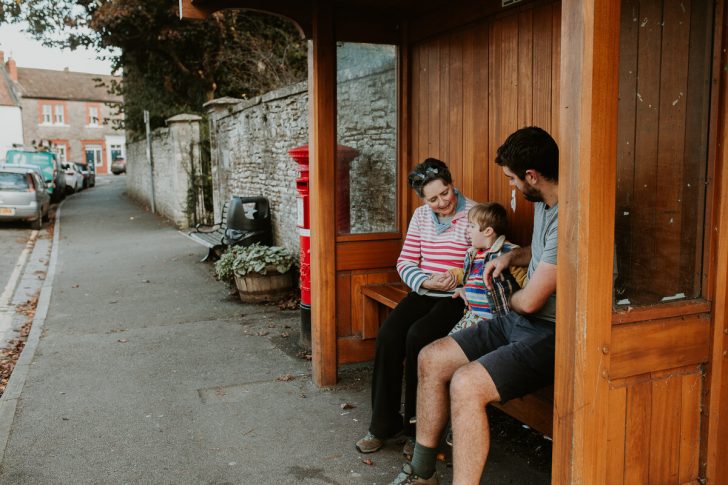
CPRE commissioned new research on public transport in the countryside in the first attempt to identify ‘transport deserts’ in rural areas. We found that nearly one million people in the north east and south west alone struggle to access buses and trains, meaning they risk being cut off from basic services.
The project helped influence the government’s February announcement of £5bn for bus and cycling schemes, and we’re calling for a fair proportion to be dedicated to rural areas.
February also saw CPRE Avon and Bristol help defeat the expansion of Bristol Airport, with our campaigners highlighting its impact on carbon emissions and the rural character of north Somerset.

In the same month our 2020 Star Count helped people connect with one of the most magical sights in the natural world while drawing attention to the wasteful lighting that detracts from it. Almost 2,500 ‘citizen scientists’ took part, with 99% of those surveyed agreeing that every child should be able to experience the wonder of a star-filled night sky. Our updated Star Count map helped highlight the importance of dark skies and inspired a December Parliamentary report recommending stronger protection against light pollution.
Meanwhile, our work to promote the recycling of derelict land influenced a spring budget announcement of a £400m fund to create a national brownfield map and help councils make the most of this sustainable resource – which our October research later confirmed could accommodate 1.3m homes. The budget also contained £12.2bn in funding for affordable homes following CPRE’s calls for investment as part of a coalition with Crisis and the National Housing Federation.
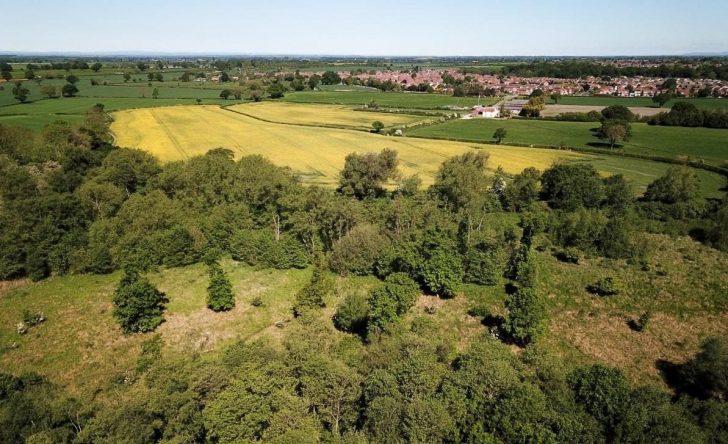
May saw 100 acres of countryside in the York Green Belt spared from development after a long campaign. CPRE North Yorkshire celebrated the decision to dismiss an appeal for more than 500 homes on land next to Askham Bog nature reserve (above), having argued that this rare surviving ancient fenland would have been compromised by urban sprawl. Askham Bog has several SSSI designations and has been described by Sir David Attenborough as a ‘cathedral of nature conservation’ and ‘the richest place in Yorkshire for wildlife.’
Another lengthy campaign saw the beauty and tranquillity of Druridge Bay saved from opencast coal mining in September. Back in 2017, CPRE veteran campaigner ‘Pitch’ Wilson had given public inquiry evidence on behalf of CPRE, citing the impact it would have had on carbon emissions, wildlife habitats and landscape character. Despite a successful outcome from the public inquiry, a subsequent judicial review meant that Northumberland’s nature lovers had to wait for the final decision – which we hope will prove a landmark in environmental protection.
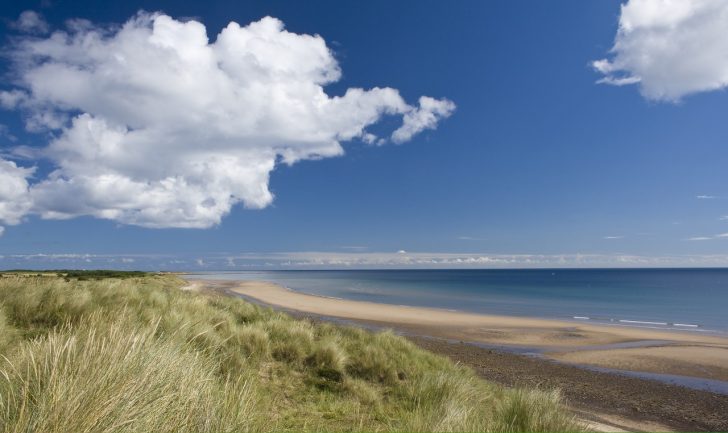
The passing of November’s Agriculture Act marked a major shift in government policy and a battle won for CPRE. The act was based on the kind of ‘new model farming’ CPRE has championed since 2016, with our lobbying ensuring that farmers will now be more fairly supported to produce environmentally sustainable food, increase biodiversity and adapt to climate change. We were particularly delighted that the legislation adopted CPRE’s specific demand that farmers should be rewarded for protecting or improving the soil that is so vital for absorbing floodwater and storing carbon. The act was followed by a new sustainable farming ‘roadmap’ incorporating many of our ideas and confirming that future funding will prioritise nature restoration.
CPRE also had an influence on the Prime Minister’s November announcement of a 10-point plan for a ‘green industrial revolution’. It was clear to see that the government had taken on board our calls for greener and more energy efficient buildings, a step change in tree planting, and a greater emphasis on cycling, walking and zero-emission public transport. Having called for more leadership on the climate emergency ahead of COP 26, we also welcomed the PM’s December decision to cut carbon emissions faster than other major economies – calling it an important ‘stepping stone’ that must be followed by real action.
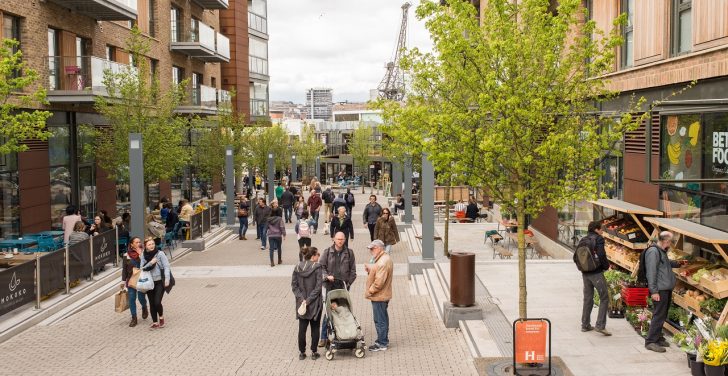
Following massive CPRE pressure in the press and Parliament, we also welcomed a December change in the government’s plans to create housing targets using a computer algorithm – which would have hugely increased the pressure to build on greenfield sites in the south east. CPRE has received huge support (including 310,000 names on our petition) for our argument that the housing we need is best accommodated in existing urban areas. We were therefore relieved to hear housing secretary Robert Jenrick confirm the government had updated the methodology, so that it would prioritise homes ‘on brownfield land first to protect the countryside’ and boost investment in ‘the cities of the midlands and the north as part of our commitment to levelling up’.
Finally, thanks in no small part to CPRE’s 2020 campaign to save our biodiverse, carbon-storing peatlands, we are due to see an English peat strategy early next year that will stop them being dug up and used in compost. Environment Minister Rebecca Pow told a December meeting of the International Union for the Conservation of Nature that the strategy will be released ‘imminently’, and quickly phase out of the use of horticultural peat in England.
See what else CPRE The countryside charity has been up to in our 2019/20 annual review
